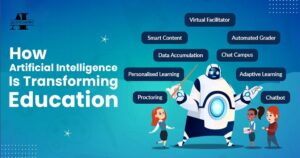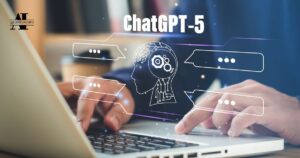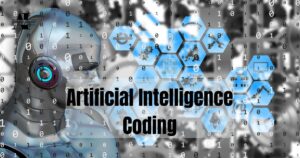Artificial Intelligence (AI) is revolutionizing education, making learning more personalized, efficient, and engaging. As students navigate their academic journeys, AI tools offer a suite of resources that cater to their unique needs. This blog post will explore the vital role of AI in education, highlight some of the best tools available, and provide insight into the functions and influence of AI on learning.
Understanding the Role of AI Tools for Education
AI tools play a transformative role in modern education. They enhance traditional teaching methods, offering innovative ways to engage students and support educators. At their core, these tools aim to create a more personalized learning experience.
The Importance of AI in Education
- Personalization: AI tools can tailor educational content to meet the specific needs of each student. This adaptability ensures that learning is not one-size-fits-all, but rather a customized experience that helps learners thrive.
- Immediate Feedback: In contrast to traditional assessment methods, AI provides instant feedback. Students can learn from their mistakes right away, which fosters a growth mindset and encourages continuous improvement.
- Engagement: Interactive AI tools, including gamified platforms, keep students engaged in their studies. By making learning enjoyable, these tools motivate students to participate actively in their education.
- Accessibility: AI enhances accessibility for students with disabilities, offering tools that facilitate learning. For example, speech recognition software can assist those who struggle with writing, ensuring that all students can succeed.
Real-World Applications
- Adaptive Learning Platforms: Tools like DreamBox Learning adjust the difficulty of lessons based on individual performance, providing a tailored approach to learning.
- Virtual Tutors: Systems such as Socratic use AI to help students with homework by providing explanations and resources tailored to their queries.
Best AI Tools for Students
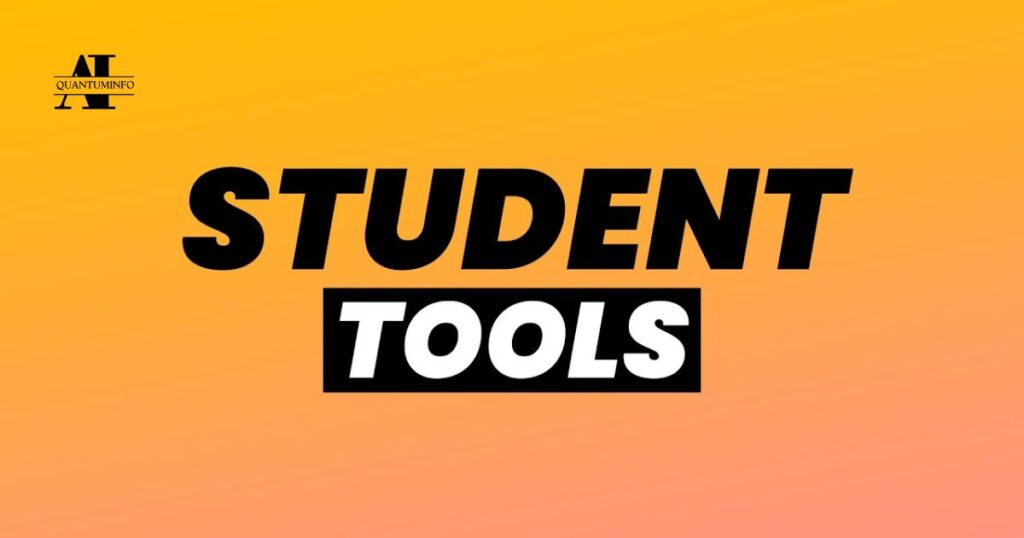
With numerous AI tools on the market, it can be overwhelming for students to choose the right ones. Here’s a curated list of some of the best AI tools available to enhance the learning experience.
Top AI Tools Overview
| Tool | Description | Use Case |
| Grammarly | An AI-powered writing assistant that checks grammar and style. | Improving writing quality. |
| Khan Academy | Offers personalised learning resources and assessments. | Self-directed study in various subjects. |
| Quizlet | Utilises AI to create custom quizzes based on study material. | Effective revision techniques. |
| Socratic | An app that provides explanations for homework questions using AI. | Homework assistance and concept clarification. |
| Otter.ai | Offers personalized learning resources and assessments. | Note-taking during classes. |
Case Study: The Impact of Grammarly
Consider a student named James who frequently struggles with his essays. After integrating Grammarly into his writing process, he begins to notice significant improvements. The tool highlights grammatical errors and suggests changes to enhance clarity and coherence. As a result, James not only improves his grades but also gains confidence in his writing abilities. This example illustrates how AI tools can lead to tangible improvements in academic performance.
Do You Want to Know Talk to an AI - Read More
Types of AI Tools for Students
AI tools for education come in various forms, each serving specific functions to enhance learning. Understanding these types can help students and educators select the most beneficial resources.
Categories of AI Tools
- Writing Assistance: Tools like Grammarly and ProWritingAid focus on improving writing skills by providing grammatical corrections and stylistic suggestions.
- Learning Management Systems: Adaptive platforms such as DreamBox and Smart Sparrow adjust content according to a student’s progress, ensuring appropriate challenges.
- Research Support: AI-driven tools like Ref-N-Write assist students with academic research by suggesting relevant literature and improving writing quality.
- Study Aids: Quizlet and Anki offer flashcard and quiz creation features, utilizing AI to enhance study habits through spaced repetition.
- Virtual Tutoring: Platforms like Chegg Tutors connect students with AI-enhanced tutoring services, providing immediate help in various subjects.
Benefits of Each Type
- Writing Assistance: These tools enhance clarity and coherence in assignments, which is crucial for academic success.
- Learning Management Systems: They encourage mastery through tailored experiences, allowing students to progress at their own pace.
- Research Support: Streamlining the research process saves time and ensures students access credible sources.
- Study Aids: They promote effective revision through interactive methods, making study sessions less daunting.
- Virtual Tutoring: Offering instant support reduces frustration and fosters confidence in challenging subjects.
What Are the Functions of AI in Education?
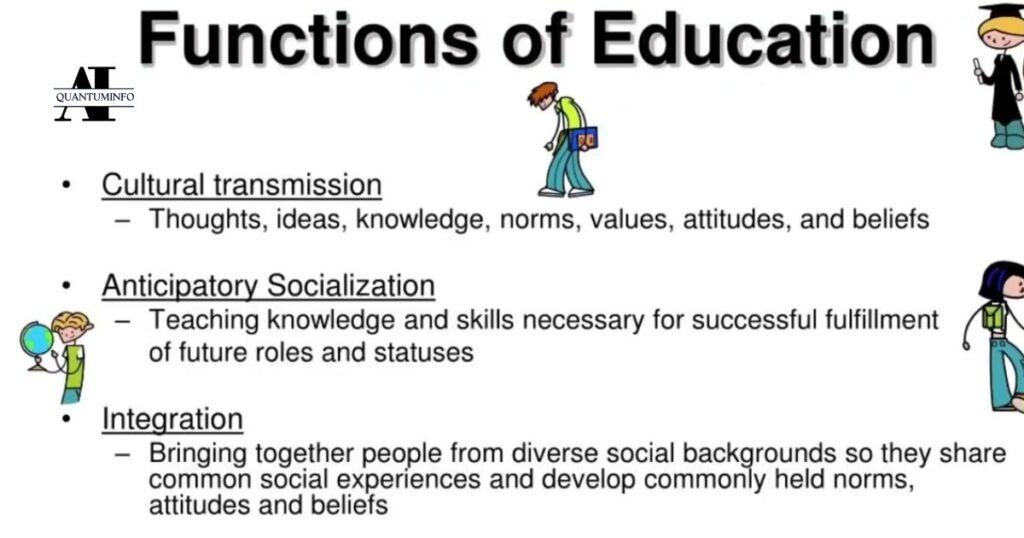
AI in education encompasses various functions that revolutionize how students learn and how educators teach. By leveraging these capabilities, AI enhances the overall educational experience.
Key Functions of AI in Education
- Assessment and Evaluation: AI analyses student performance data to evaluate understanding and identify areas needing improvement.
- Content Creation: AI tools can generate quizzes, summaries, and study guides, saving educators time and effort in lesson preparation.
- Enhanced Engagement: Interactive platforms utilize gamification to keep students engaged and motivated in their learning process.
- Predictive Analytics: By analyzing trends in student data, AI can predict outcomes and recommend interventions for those at risk of falling behind.
- Administrative Support: AI streamlines administrative tasks, such as grading and scheduling, allowing educators to focus on teaching.
Do you Want to know storytelling - Read More
Practical Applications
For instance, predictive analytics can identify students at risk of underperforming. By flagging these individuals early, educators can implement targeted support strategies. This proactive approach not only enhances outcomes but also fosters a supportive learning environment.
AI’s Influence on Education
The influence of AI on education is profound, reshaping how students learn and how educators teach. As AI becomes more integrated into educational systems, its impact continues to grow.
Transformative Effects of AI
- Shift in Teaching Methods: Traditional, lecture-based teaching is gradually transitioning to more interactive, student-centered approaches, facilitated by AI tools.
- Data-Driven Decision Making: Schools and universities can utilize AI to make informed decisions based on student performance data, leading to improved curriculum development.
- Global Learning Opportunities: AI enables access to quality education from anywhere in the world, breaking down geographical barriers and promoting inclusivity.
- Focus on Lifelong Learning: AI supports continuous education, allowing individuals to upskill throughout their lives, adapting to the ever-changing job market.
Expert Insights
“AI is not just a tool; it’s a partner in the learning process, helping students thrive in a digital age.” – Dr. Emily Johnson, Educational Technologist.
This perspective underscores AI’s collaborative role in education, emphasizing that it complements traditional methods rather than replacing them.
A Brief History of Artificial Intelligence
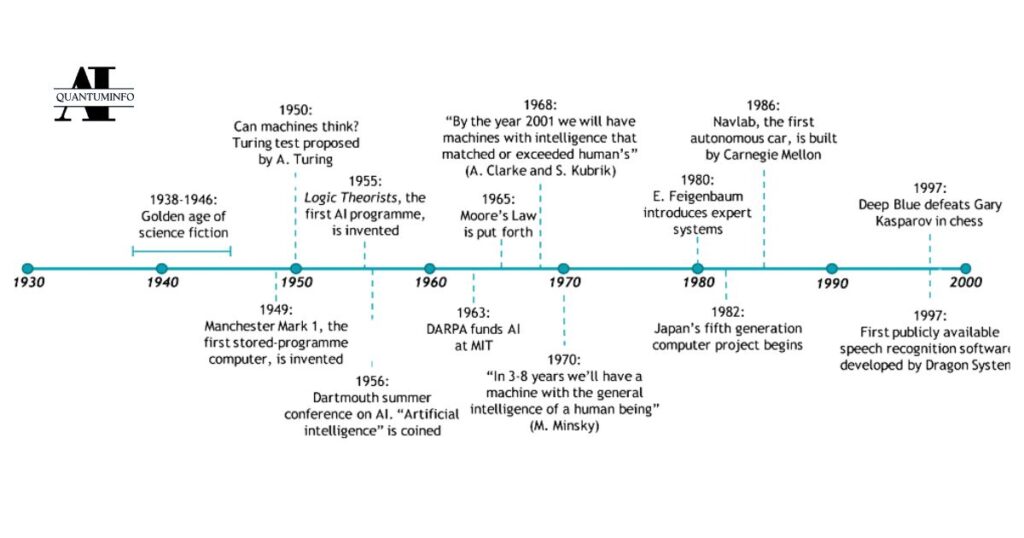
To fully appreciate the impact of AI on education, it’s essential to understand its evolution. Here’s a brief overview of AI’s journey from its inception to its current state.
Timeline of Key Developments
- 1956: The term “Artificial Intelligence” was first coined at the Dartmouth Conference, marking the beginning of AI research.
- 1960s-70s: Early AI programs like ELIZA demonstrated simple natural language processing capabilities.
- 1980s: The rise of expert systems, which could mimic human decision-making in specific domains, gained popularity.
- 1997: IBM’s Deep Blue defeated world chess champion Garry Kasparov, showcasing AI’s potential in strategic thinking.
- 2010s: The advent of machine learning and deep learning led to significant advancements in AI capabilities, making it more applicable to everyday life.
Milestones in Educational AI
In recent years, AI has made remarkable educational strides, with adaptive learning technologies and intelligent tutoring systems becoming more mainstream. These innovations have transformed how students and educators interact with information and with each other.
Final Thoughts
As we have explored, Artificial Intelligence for Students is not just a trend; it’s a significant shift in how education is delivered and experienced. From personalized learning experiences to efficient administrative processes, AI tools pave the way for a more engaging and effective educational landscape.


